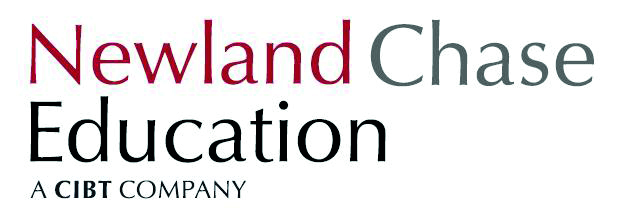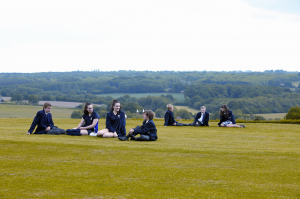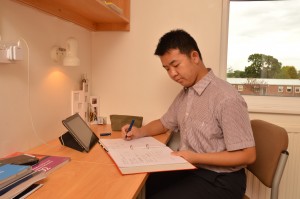The UK has long welcomed students from overseas. Entering the country in order to study is straightforward as long as a student can produce the correct documentation with help is available from UK Visas and Immigration, visa application centres and/or the British Mission/ Embassy/High Commission/Consulate-General in your own country.
The school at which your child is to study will be happy to help and many have a designated International Coordinator who can advise you or signpost you to the right place. Some schools also arrange informal seminars overseas in order to help parents understand the school’s application procedure and the UK’s entry requirements.
UK entry clearance
Entry clearance is literally that: every student, regardless of age or subject of study, must obtain permission to enter the UK in order to study. The only exceptions are students with a British passport. Until December 2020 all countries that were members of the European Union (EU) and the EEA had the same right to study in the UK as UK nationals. From January 2021, all non-British nationals will need a visa to study in the UK with visa applications made using the points-based student route.
Types of visa
The main type of visa applicable to studying at schools in the UK are Tier 4 (Child) Student for those between 4 and 17. Generally, students over 18 will come under a Tier 4 (General) Student visa, although it may also be applicable to some students who are 16 or 17 if they are studying a course at level 3 or above of the National Qualifications Framework.
The points system
To be granted permission, your child must meet the full requirements of the Immigration Rules and have 40 points in total; 30 from having a valid Confirmation of Acceptance for Studies from a ‘licensed Tier 4 sponsor’, and 10 points for having enough money to cover your child’s course fees and monthly living Confirmation of Acceptance for Studies (CAS) An important part of applying for a visa is the CAS, which is an electronic document with a unique reference number given to a visa applicant by an institution with a Tier 4 sponsor licence (also known as a ‘Tier 4 sponsor’). The CAS shows that the applicant has an official, unconditional offer from the school or college for the course of study they want to undertake.
The visa
Once you have received the CAS, you should complete a visa application form, which, for most countries, may be completed online via the Visa4UK website or for professional help contact Newland Chase Education.
You will need:
• The CAS and the documents you submitted to the school for the issue of the CAS (although only the CAS is necessary for children under 16)
• A letter from yourself (Parental Consent Letter) as their parents or legal guardians giving your relationship to your child, and your written consent to the application, the living arrangements and for your child’s travel to and reception in the UK your child’s passport
• The visa fee, paid in your local currency (£348 at time of printing)
• your child’s biometric details
• Two recent photographs, conforming to internationally agreed standards, with the child’s name written on the back
• Proof that you have the course/school fees and funds for living costs.
English language requirements
Applicants for Tier 4 (General) Student visas (generally students aged over 18) who want to study certain courses at below degree level show they have a minimum level of competence in the English language by having passed an approved secure English language test (eg IELTS or TOEFL). This does not apply to applicants for Tier 4 (Child) Student visas, so will not affect pupils between the ages of 4 and 17 years old at independent feepaying schools or colleges.
Tuberculosis (TB) screening
As part of the visa application process, your child will have to be tested for TB if they are coming to the UK for more than six months and are resident in one of the countries where you need a TB test in order to enter the UK as specified on the UK Visas and Immigration website). There are, however, some groups who are exempt from this testing, which is also outlined on the website.
Getting the timing right
Obtaining the necessary clearances can be slow and depends partly on the country and partly on the time of year; applications usually take longer in the summer months when many people are applying. UK Visas and Immigration is committed to processing 90% of all applications within three weeks and 100% within 12 weeks of the application date. The time required to process visas will vary by country (for a guide to the timescale you can expect, click here.
Travelling to the UK
Parents should arrange their children’s travel to the UK and should keep the school informed about travel arrangements. Schools take their responsibility for pupils very seriously, so must know where and when they are coming and going. Many schools arrange for international students to be met at airports and/or train stations and organise their onward journey to school. School dates are circulated a year in advance with many offering induction programmes at the start of each term – students are expected to arrive ready to start work on the first day of term and are also expected to stay until the last day of term
Insurance
Travel insurance is usually available when you buy international travel tickets; travel agents and insurance brokers can advise you. You may also need to arrange insurance to cover your child’s personal belongings whether brought to the UK or purchased there. Your own insurance policy may cover personal items while overseas, or you may need to arrange additional cover. Health insurance is not usually necessary as the UK’s National Health Service (NHS) provides free and universal medical treatment to which international students are entitled if they are on a course that lasts six months or more (or a full-time course of any length in Scotland). You may, however, need to pay for dental or optical treatment and any medicines prescribed for your child.
International students who are in the UK for less than six months may also be treated free of charge if they are from a country that has a reciprocal health agreement with the UK, or if their course is at least 35% funded by the UK Government. For further information, go to the ‘Health and healthcare’ section of the UK Council for International Student Affairs website. Details of NHS entitlement change from time to time, so you should check with the British Mission/Embassy/ High Commission/Consulate-General in your own country before your child travels to the UK.
Although you may not need insurance for medical treatment it is sometimes worth taking out insurance to cover possible additional costs resulting from illness. Such costs could include lost or additional fees if your child is unable to complete their course or has to repeat part of it, or travel costs if you wish to visit them if they fall ill.
What to bring
Your child’s school will send pre-departure information advising you what your child should bring with them when they travel to the UK along with detailed school uniform lists. The following may also be useful:
In hand luggage
Many airlines have strict regulations about what may be carried on board. Make sure you know the regulations, as anything packed in hand luggage that is not permitted may be confiscated at the airport of departure.
Important items to include in your child’s hand luggage are:
• Passport, visa and tickets
• CAS and letter of acceptance from the school
• Insurance papers
• Address and contact details of your child’s school, plus information about when and where your child is to be met and by whom
• Money – a small amount of British money, credit card (preferably in a money belt or a very secure inside pocket
• A list of important items included in your child’s main luggage in case it gets lost and you need to make an insurance claim
• Medical documentation including vaccination certificates and doctor’s letters if necessary. In addition, if your child needs to take medication prescribed by your own doctor, get a letter from the doctor in English explaining exactly what the medication is and why your child takes it. This will allow your child to bring a small supply of the medication into the UK and means that they will have a record to show their school’s doctor, so that they can continue receiving treatment.
In main luggage
Choose a suitcase or backpack that your child can carry easily, and try not to pack too much; they will be able to buy most things in the UK and storage space can be limited at school. The main items your child will need to bring are casual clothes and some favourite possessions. The school will advise on whether students can bring their own music systems, computers, mobile phones, etc. If they can, you should check that electrical equipment is compatible with the UK standards – it may need an adaptor or voltage converter. If your child does bring audio or computer equipment with them they should also bring a receipt showing where and when it was purchased. The receipt will help prove to customs officials that the items are for personal use and not being imported for sale. Personal items are exempt from customs duty.
Important items to pack include photocopies of all the documentation carried in hand luggage, notes of the numbers of your child’s traveller’s cheques, and a small amount of spare cash. There are certain things your child is not allowed to bring into the UK. Some items are obvious, others such as certain foods less so. A complete list can be obtained from the British Mission/Embassy/High Commission/Consulate-General in your own country.
Steve Paxton is the Commercial Director at one of our partners, Newland Chase Education, who offer expert immigration and visa advice.
 Newland Chase Education
Newland Chase Education
E-mail: education@newlandchase.com
Telephone: +44 (0) 113 3401515
Website: education.newlandchase.com



